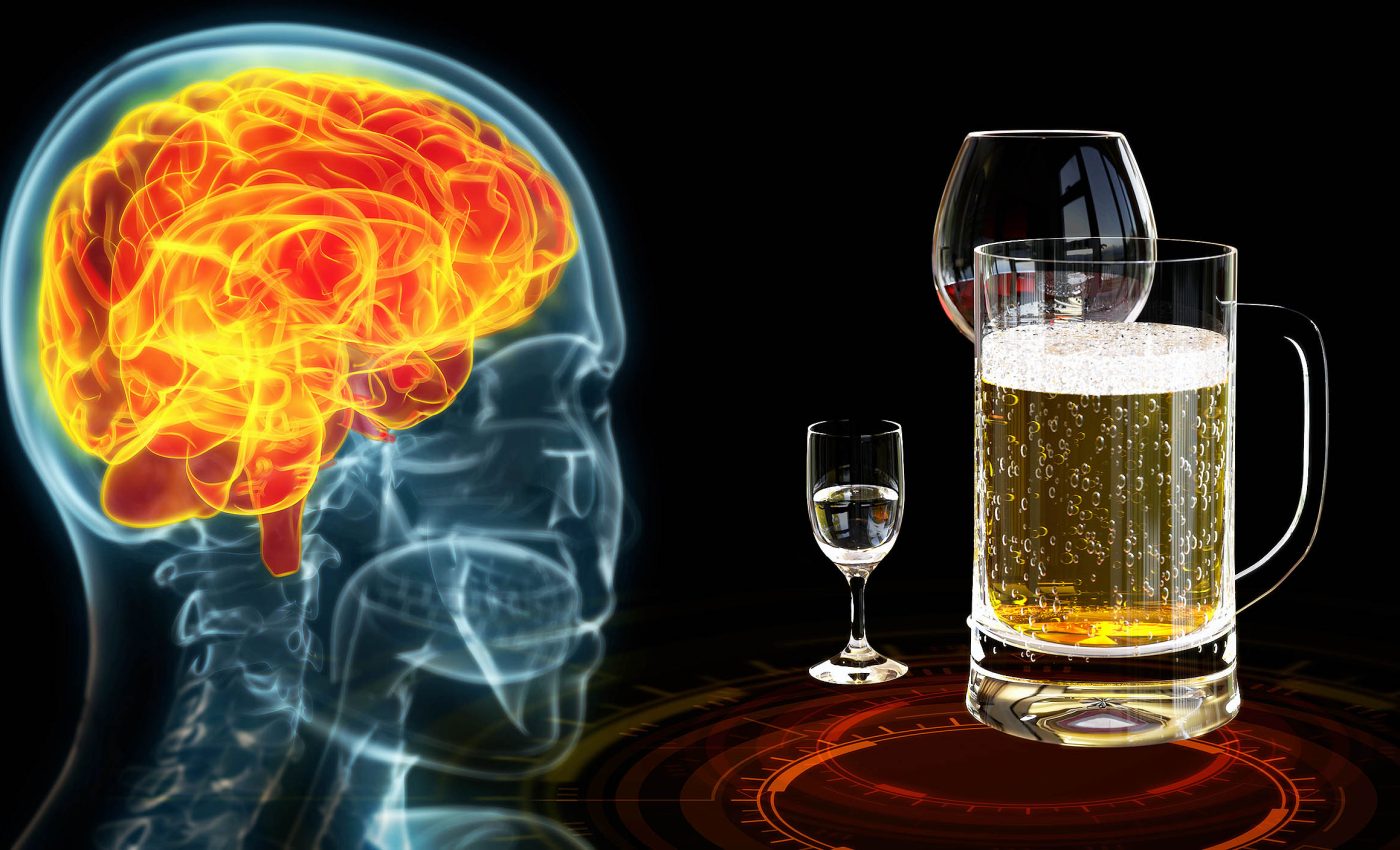
Alarming study shows drinking "any amount" of alcohol increases risk of developing dementia
We have heard this claim for years: having one or two drinks of alcohol every day might actually help the brain and keep dementia at bay. It sounded neat and tidy – and pleasantly convenient.
But appealing stories are not always true, including this one, especially when they come from snapshots of messy human lives.
Here is the issue. People change how they drink as they age, and those shifts can blur what is really going on in the brain.
If early memory trouble nudges someone to cut back long before a diagnosis, an observational snapshot can make light drinkers appear safer than they are. That is the classic mix-up between cause and effect.
Alcohol, dementia, and U-shaped curves
For a long time, large surveys showed a U-shaped curve: non-drinkers at one end and heavy drinkers at the other looked worse off, while light or moderate drinkers sat in the middle with lower dementia rates.
On paper, it looked as if moderation was some kind of sweet spot.
But those curves were based on what people reported and on what happened to them over time, not on controlled experiments. Observational studies show patterns; they do not prove causation.
Testing the link
The new study used both standard observational methods and a genetic approach to cut through the tangle.
First came the familiar step: analyzing two large health datasets, the U.S. Million Veteran Program and the UK Biobank.
Together, these datasets followed more than half a million adults, mostly in their late 50s to early 70s.
Over the years, tens of thousands developed dementia or died. The same U-shape showed up again. People with a diagnosed alcohol use disorder (AUD) had a particularly high risk.
If you stopped there, you might conclude that the middle of the curve was safest, but the second method changed the picture.
Nature’s randomized trial
Mendelian randomization uses genetic variants tied to alcohol use as natural “nudges.” You do not pick your genes, and they do not suddenly shift when you start to get sick.
That makes them useful tools for testing whether higher lifetime exposure to alcohol pushes dementia risk up or down, independent of life’s twists and turns.
In a genetic dataset of about 2.4 million people, the team studied three alcohol-related traits: drinks per week, problematic alcohol use, and diagnosed alcohol use disorder.
When they used those genetic instruments to estimate the effect of higher alcohol exposure across a lifetime, the supposed dip in dementia risk disappeared.
Risk rose as alcohol exposure increased.
A standard-unit increase in genetically predicted drinks per week corresponded to a meaningful increase in dementia risk, and stronger genetic liability to alcohol use disorder came with higher risk as well.
Where the U-shape comes from
Two everyday problems explain the illusion. First, reverse causation. In the veterans’ records, people completed repeated alcohol screenings.
Looking back from the point of diagnosis, alcohol use tended to fall faster among those who would later develop dementia than among similar people who stayed dementia-free.
Some people labeled as light drinkers in a snapshot were actually former heavier drinkers who had already started cutting back because early brain changes were beginning.
Second, group mix-ups and social differences add noise. Non-drinkers often include former heavy drinkers who quit due to health problems.
In many populations, non-drinking also tracks with lower income or education, which are themselves linked to higher dementia risk.
Even careful adjustments can leave behind residual confounding. The comparisons are not clean.
Linking alcohol and dementia in reality
Scope matters. Earlier genetic studies often focused only on late-onset Alzheimer’s disease and did not have the numbers to detect modest effects.
This work looked at all-cause dementia and brought serious statistical power.
The researchers checked their genetic tools across age and sex, and they ran sensitivity analyses to ensure anomalies were not steering the results. The main findings held.
The takeaway is practical. More alcohol, more risk. Alcohol use disorder shows a strong link to dementia, which means fewer cases of AUD could translate to fewer new dementia diagnoses over time.
That is a lever public health can pull. It’s not the only lever – blood pressure control, regular physical activity, steady sleep, diabetes management, and staying socially and mentally active all matter – but alcohol is one you can choose to change today.
Alcohol, dementia, and playing it safe
“Our study findings support a detrimental effect of all types of alcohol consumption on dementia risk, with no evidence supporting the previously suggested protective effect of moderate drinking,” the study’s authors concluded.
“The pattern of reduced alcohol use before dementia diagnosis observed in our study underscores the complexity of inferring causality from observational data, especially in ageing populations.”
The results of this study highlight the importance of considering reverse causation and residual confounding in studies of alcohol and dementia.
Overall, they suggest that reducing alcohol consumption may be an important strategy for dementia prevention.
Cutting back is worth it. If you drink, keep it modest and mindful. If your drinking edges toward loss of control, it is time to get help – early action pays off.
The idea that a small daily drink protects thinking does not hold up once genetics steps in to sort cause from coincidence. Less beats more. That is not flashy, but it is solid, and your future self will be glad that you stuck with it.
The full study was published in the journal BMJ Evidence Based Medicine.
—–
Like what you read? Subscribe to our newsletter for engaging articles, exclusive content, and the latest updates.
Check us out on EarthSnap, a free app brought to you by Eric Ralls and Earth.com.
—–













